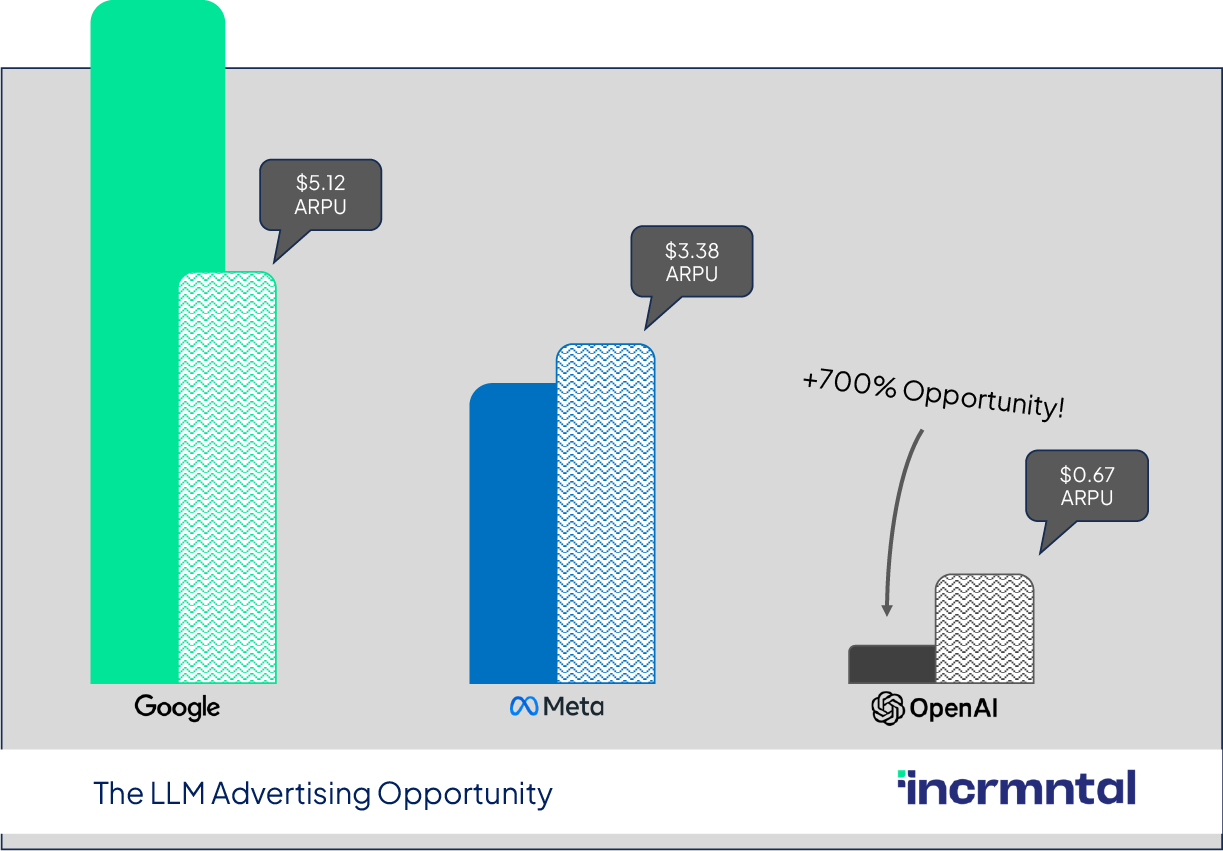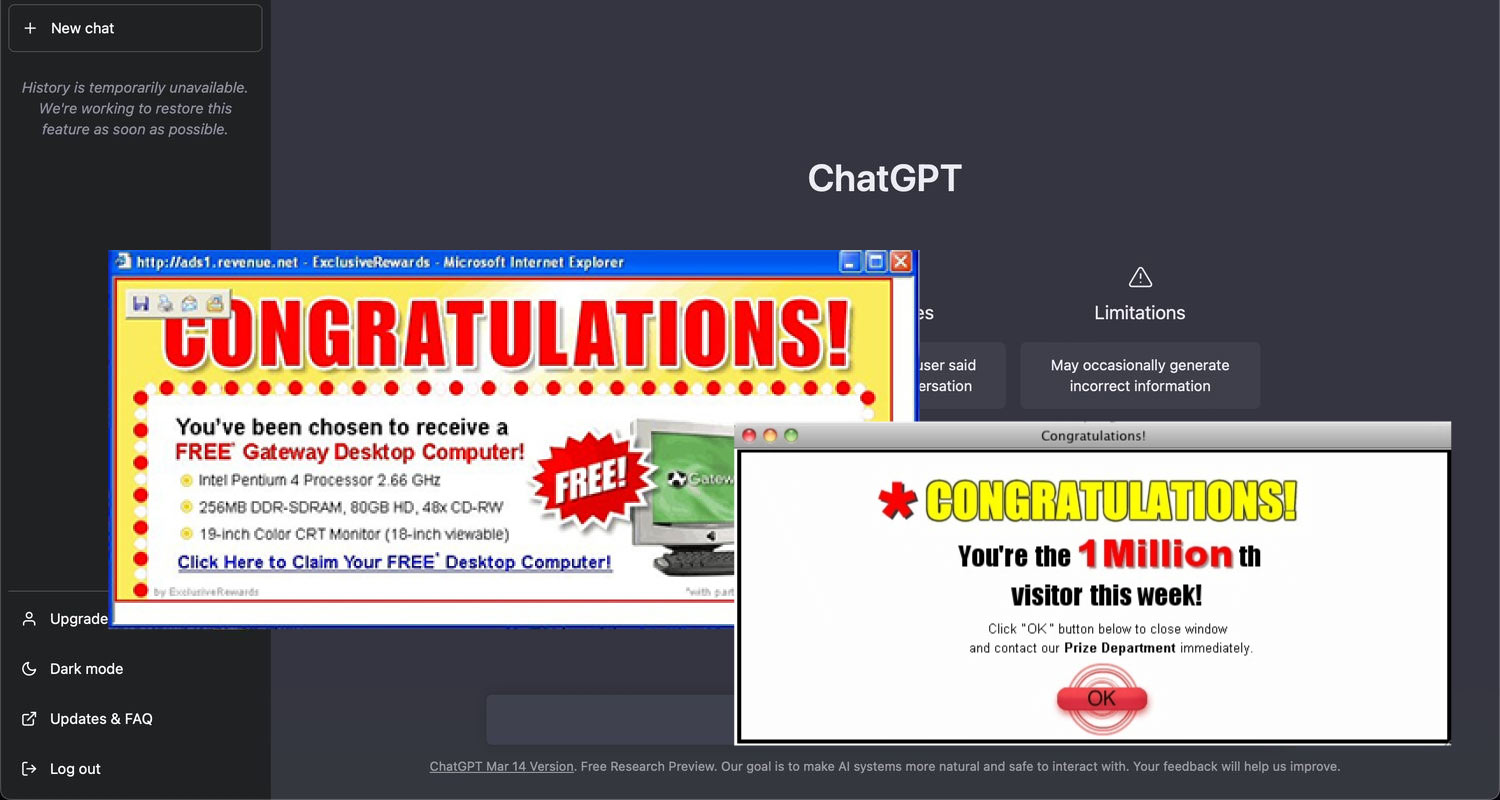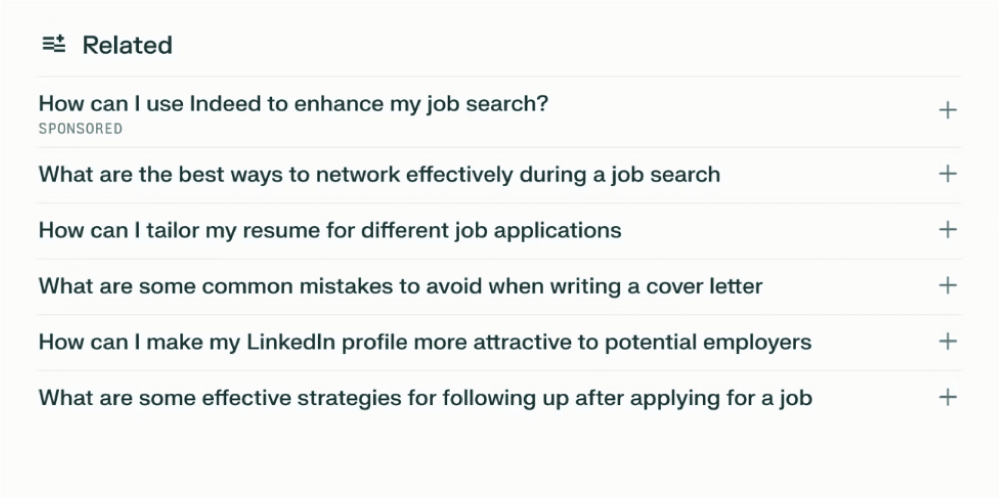Platform
Use Cases
Many Possibilities. One Platform.
AI and Automation
The Always-on Incrementality Platform
Solutions
Teams
Built for your whole team.
Industries
Trusted by all verticals.
Mediums
Measure any type of ad spend
Use Cases
Many Possibilities. One Platform.
AI and Automation
The Always-on Incrementality Platform
Teams
Built for your whole team.
Industries
Trusted by all verticals.
Mediums
Measure any type of ad spend

It’s hard to remember how the internet was before tools like ChatGPT, Claude, Gemini, Perplexity and others came into our lives. As LLM ads begin to emerge, the meteoric rise of Large Language Models (LLMs) has clearly ushered in a new era for search. The meteoric rise of Large Language Models (LLMs) brought a new era for search. The new platforms offer users with a completely new level of interaction with information, going away from the keyword search to providing full answers, generating content, or even allowing users to engage in a conversation with the LLM. Search ads, we know them, are on their deathbed.
In a strange (un)coordinated step, almost all LLMs offer a $20 a month paid subscription to the service. To the average user, the value unlocked with a paid subscription is questionable while most LLMs continue offering free access because they need to train on enormous sets of data. Restricting access to paid subscribers would limit the continuous improvement of the LLM model.
ChatGPT CFO said that approximately 75% of OpenAI’s revenues comes from the paid subscription, while Sam Altman, OpenAI’s CEO said that OpenAI is losing money on the $200-per-month subscription tier, because people use it more than OpenAI expected. While subscription models are certainly viable, only a very small percentage of users opt in to pay for a service that is also offered for free. It's highly probable that the majority of revenue for these LLM search engines will ultimately come from advertising. This prediction draws parallels from the evolution of other dominant platforms, most notably: Facebook.
Facebook, initially a free service for users, quickly discovered the immense power of targeted advertising. By meticulously analyzing user data, Facebook developed the second BEST advertising ecosystem in history.
The ads model is incredibly successful, showing the potential to monetize not part of the users, but all, through the personalization of ads, and granting users choice. As of 2023, Meta’s monthly average revenue per user (ARPU) stands at $3.38 globally.
Only one company ahead of Meta with their advertising product is Google, with their dominance in Search, as well as Video. Google made a smart decision to keep Search monetization with Ads, while YouTube offers ads free, or an expensive subscription to YouTube premium. This tiered approach allows users to choose their preferred experience while ensuring a sustainable revenue stream for Google. Google’s ARPU stands at $5.12 globally.
This can’t be an article about Ads Free, or Subscription revenues, without mentioning Netflix. Netflix, was a strong opponent against advertising in their service, but recently introduced an ads-supported tier as well. This shift acknowledges the growing importance of advertising revenues, even for premium content providers.
ChatGPT, currently the leading LLM platform, has approximately 300 million weekly users today. In sharp comparison, Meta, has almost 3.3 billion (with a “b”), and Google, has an estimated reach of over 4 billion online users globally.
Based on the unconfirmed figures shared by OpenAI, the company behind ChatGPT, the company generated approximately $1.6b in revenues during 2023, which would mean that their current monthly ARPU is only $0.67. This highlights significant LLM monetisation opportunities if advertising is introduced.
By adding an ad supported tier, if compared with Meta, or Google’s ARPU, OpenAI may have an opportunity to increase revenues by between 16.5x and 24.8x! Conservatively, OpenAI could generate more than $26 billion annually from advertising alone — making LLM monetisation opportunities one of the most compelling developments in digital advertising today.
I would estimate that OpenAI stands to gain at least $26 billion in annual revenues by offering an ads supported tier, and integrating ads into the native results. I would also bet that ChatGPT will feature ads within the coming year or so!
 (this is hopefully not how ads will look on ChatGPT 😬)
(this is hopefully not how ads will look on ChatGPT 😬)
Why will ads dominate LLM search ?
While adtech is the monetization engine of the internet, users are not fans of ads. If Facebook or instagram would launch in 2024, it would likely offer a subscription model before it would introduce ads.
The future of LLM search is likely to be a hybrid model, combining the scale of digital advertising with the choice of subscription tiers. By strategically leveraging both revenue streams, LLM search engines can achieve sustainable growth, deliver exceptional user experiences, and continue to push the boundaries of artificial intelligence.
I hope this article provides valuable insights into the potential future of LLM search engines!
Perplexity, which is the first LLM search engine experimenting with ads, introduced a non-intrusive ad format with sponsored related questions.
 (Ads on Perplexity LLM search engine)
(Ads on Perplexity LLM search engine)
In a blog post explaining the move, Perplexity said that monetizing with ads would allow Perplexity to broaden their publisher program (allowing publishers to implement an LLM search engine feature), but also that the advertising program will never share personal information with advertisers.
A harsh statement such as this, means that Advertisers cannot use legacy measurement technologies tracking users impressions or clicks across the Perplexity website or LLM search.
To accurately measure llm ads, advertisers will need an AI-first, incrementality-based approach. This is where advanced experimentation and data-driven analysis become critical. Tools such as INCRMNTAL, an AI-powered marketing insights platform, enable advertisers to understand true impact beyond last-click attribution.
LLM ads are integrated directly into AI-generated responses rather than appearing as standalone listings. This creates a more contextual and conversational ad experience compared to traditional keyword-based search ads.
LLM platforms are experiencing rapid user adoption and high engagement. As these platforms scale, advertising becomes the most sustainable way to monetise usage while keeping access free for the majority of users.
One of the biggest challenges is measurement. Traditional metrics like clicks and last-touch attribution are often insufficient in LLM environments, making incrementality and experimentation essential.
Yes. Many LLM platforms are designing ad models that do not rely on personal user data. Instead, ads are served contextually based on the conversation or query, prioritising privacy while still maintaining relevance.
Brands should focus on testing, experimentation, and incrementality-based measurement frameworks to understand true impact. Preparing early allows advertisers to gain a competitive advantage as LLM ad ecosystems mature.

Maor is the CEO & Co-Founder at INCRMNTAL. With over 20 years of experience in the adtech and marketing technology space, Maor is well known as a thought leader in the areas of marketing measurement. Previously acting as Managing Director International at inneractive (acquired by Fyber), and as CEO at Applift (acquired by MGI/Verve Group)